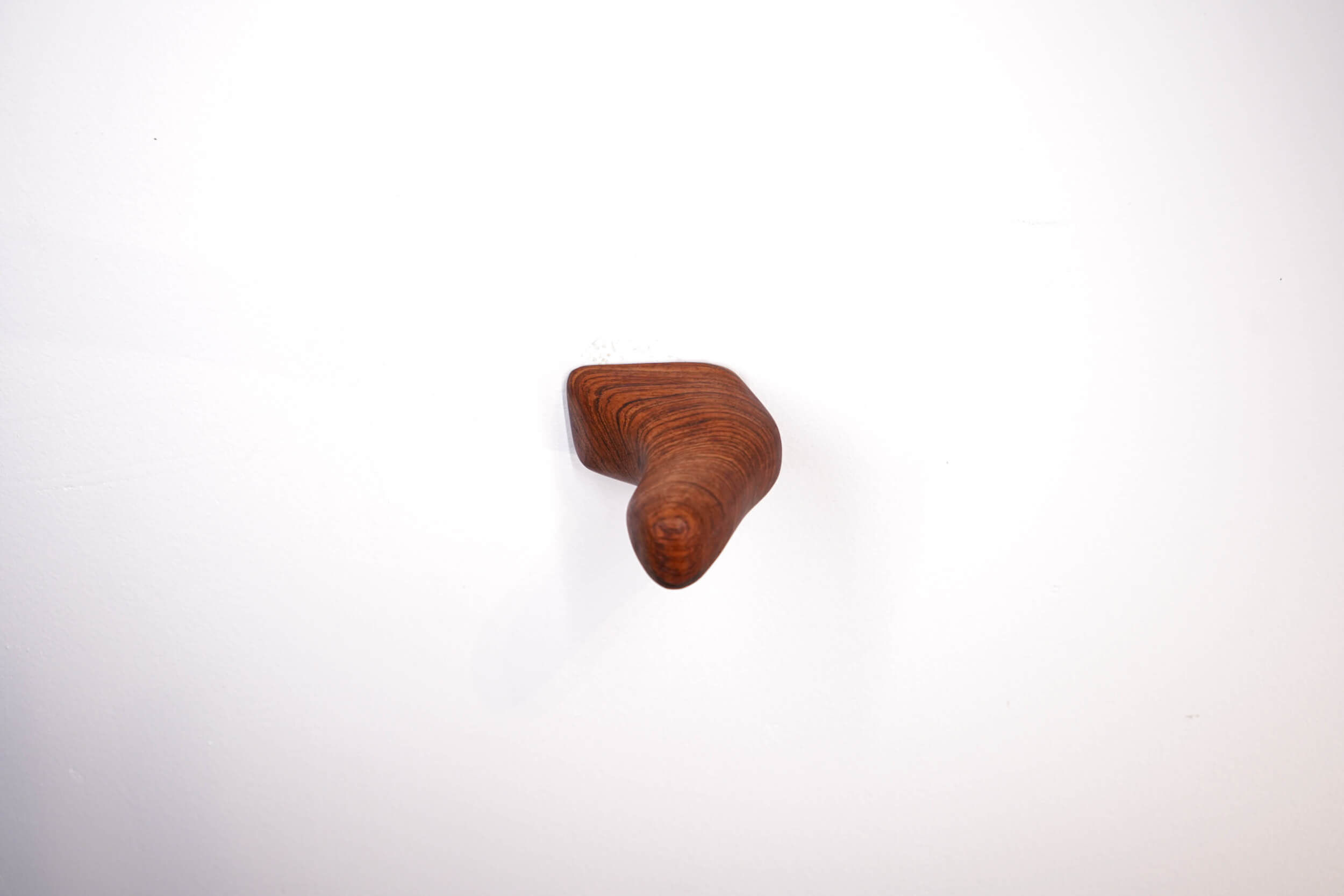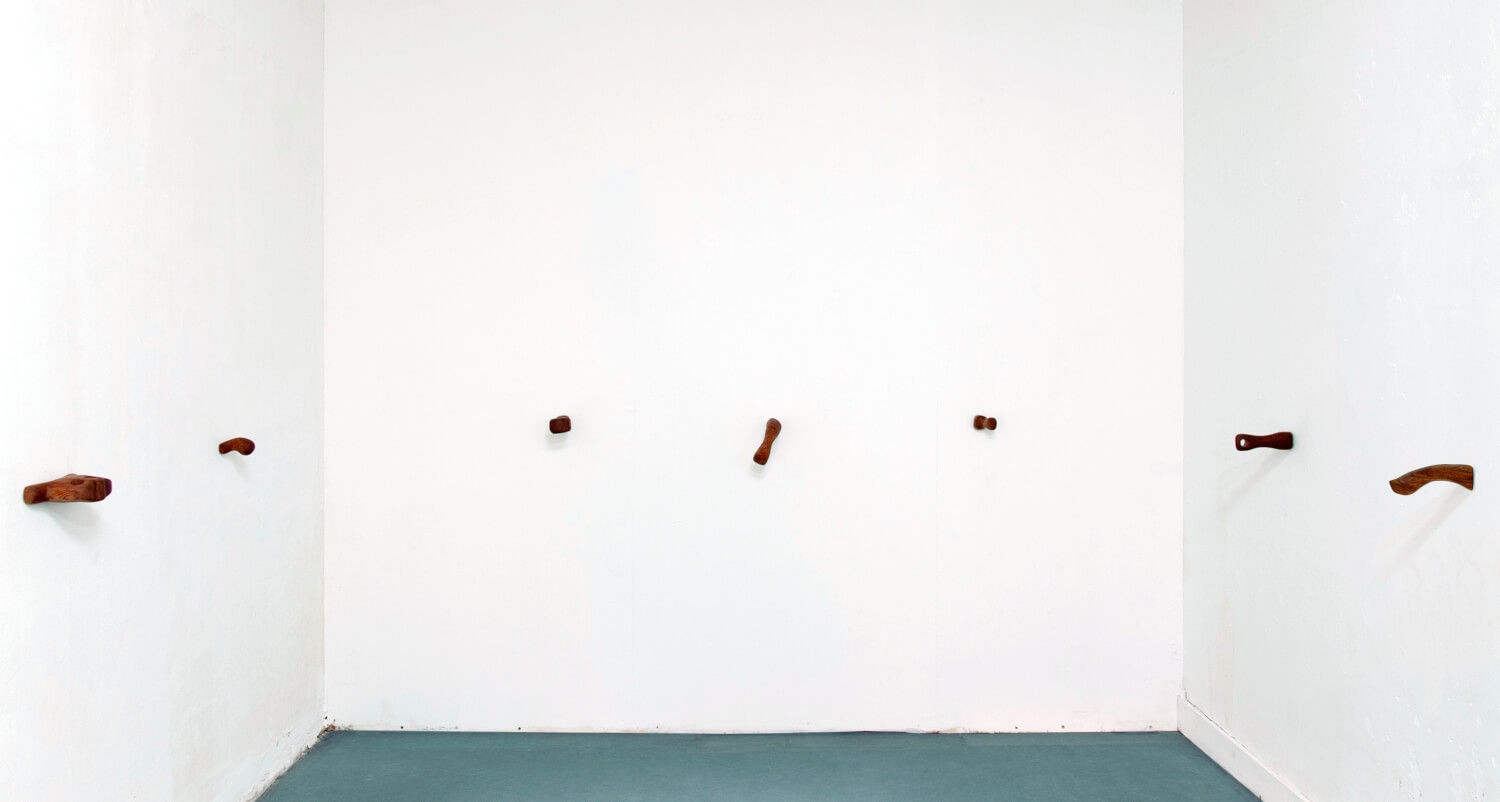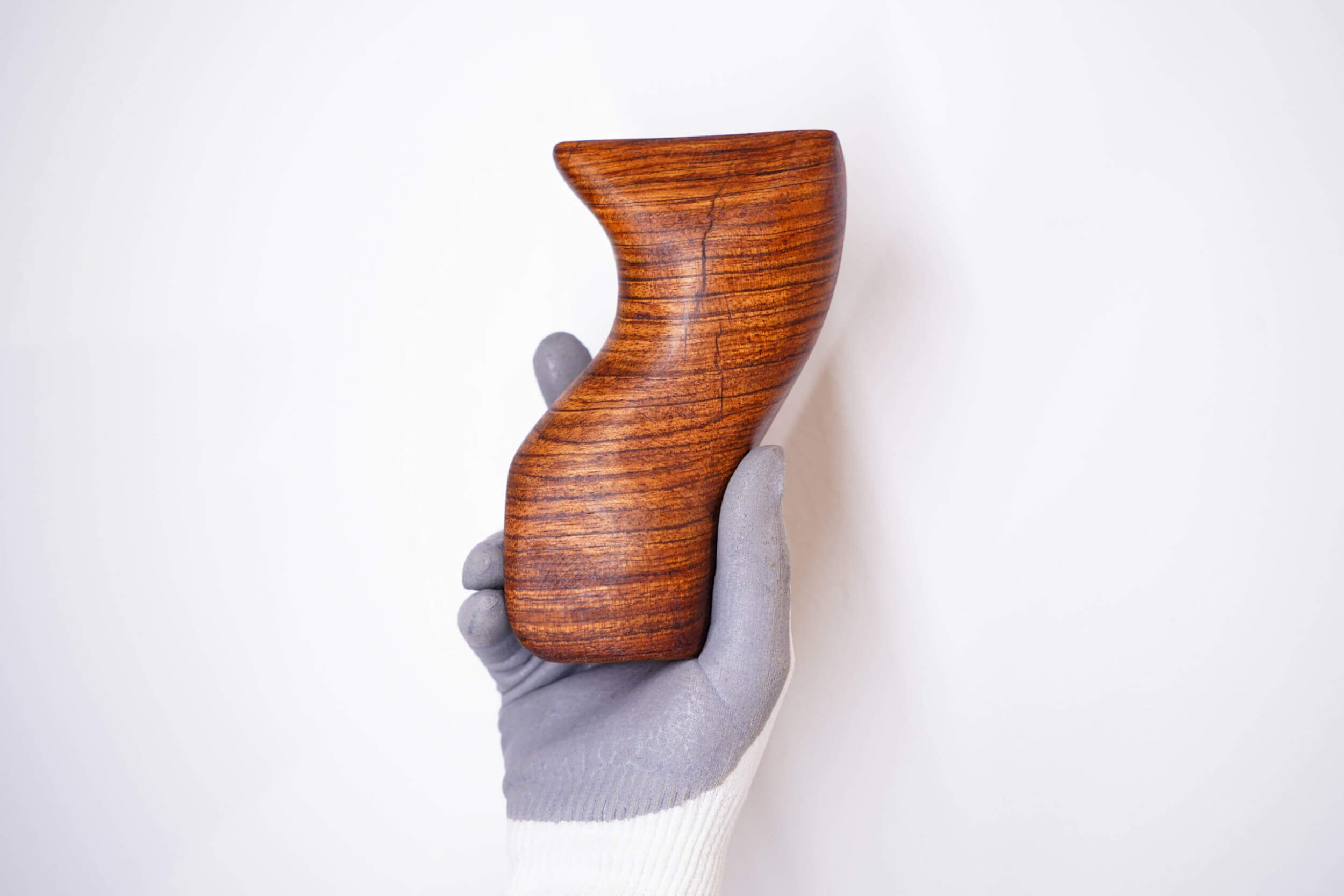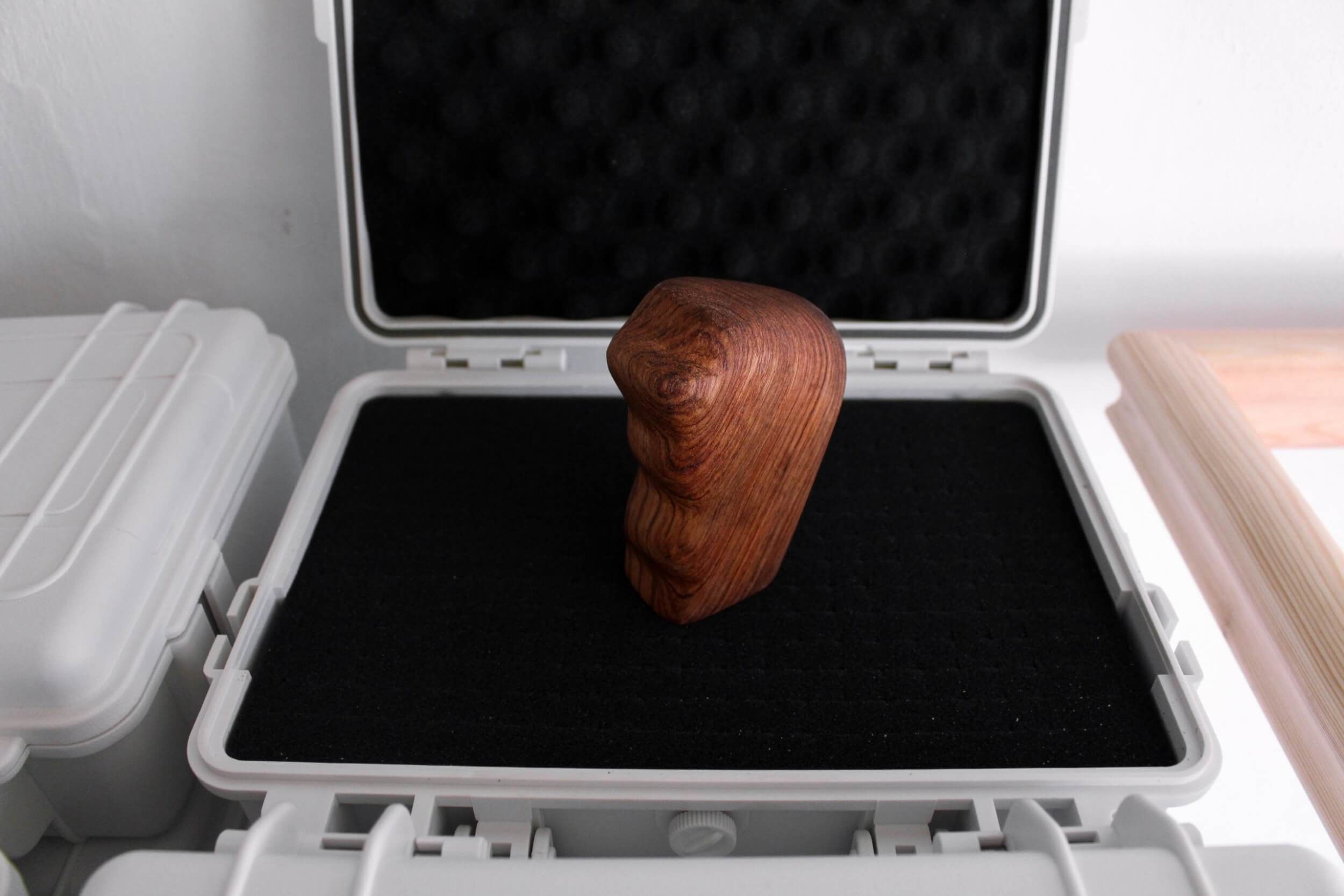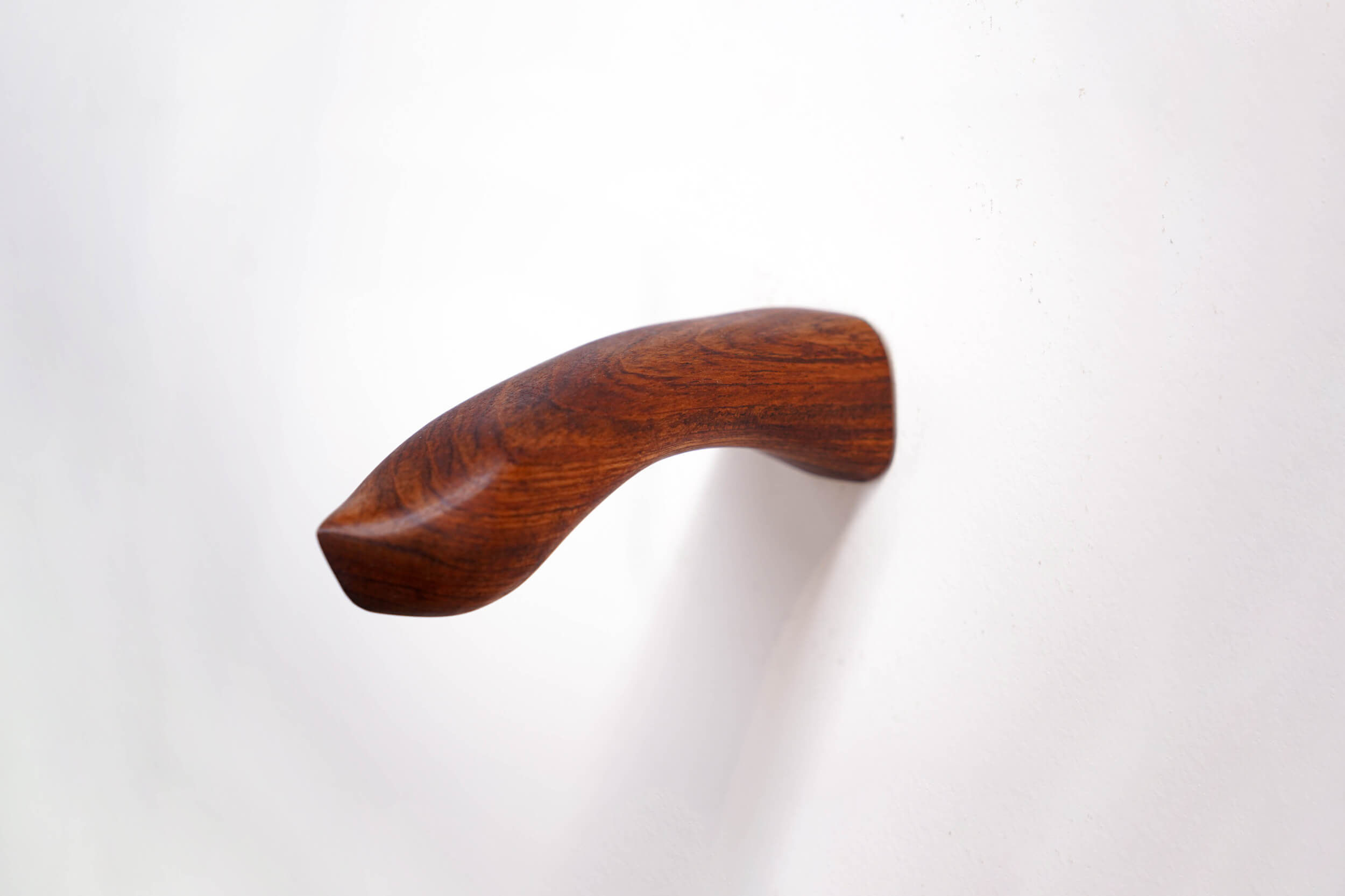Parts Missing showcases a series of objects made from CITES-listed (banned) hardwood. Because of its critically endangered status, the wood is only sold in very small, very high-priced leftover batches, making the already luxurious resource even more exuberant.
The wood is carved into various handle-like shapes; the very practical part for manipulating objects, as well as the trophy part of tools.
The handles are made of Bubinga, an endangered West African wood species. Bubinga was used by the Chinese market to replace other near-extinct timbers because of their physical similarity, to create replicas of Ming Dynasty furniture pieces. China’s expanding middle class, who wanted to own a piece of their heritage, created a growing demand that was incompatible with the natural afforestation of hardwood.
The handles are attached to the walls as done with hunting souvenirs, but at hip height, making the visitors stand in line facing the wall. In other iterations, the handles are attached to a horse-jumping obstacle and several anomalous panels. Their various shapes invite different approaches and attitudes to be held, spiking different associations on the character and malignancy of the missing tool.
Parts Missing draws on the manufacture of desire through exclusivity and missing parts.


